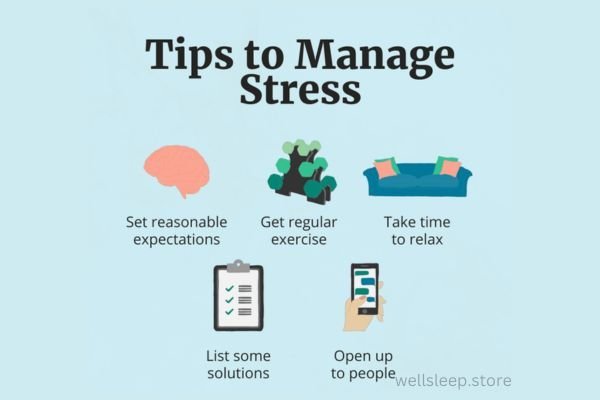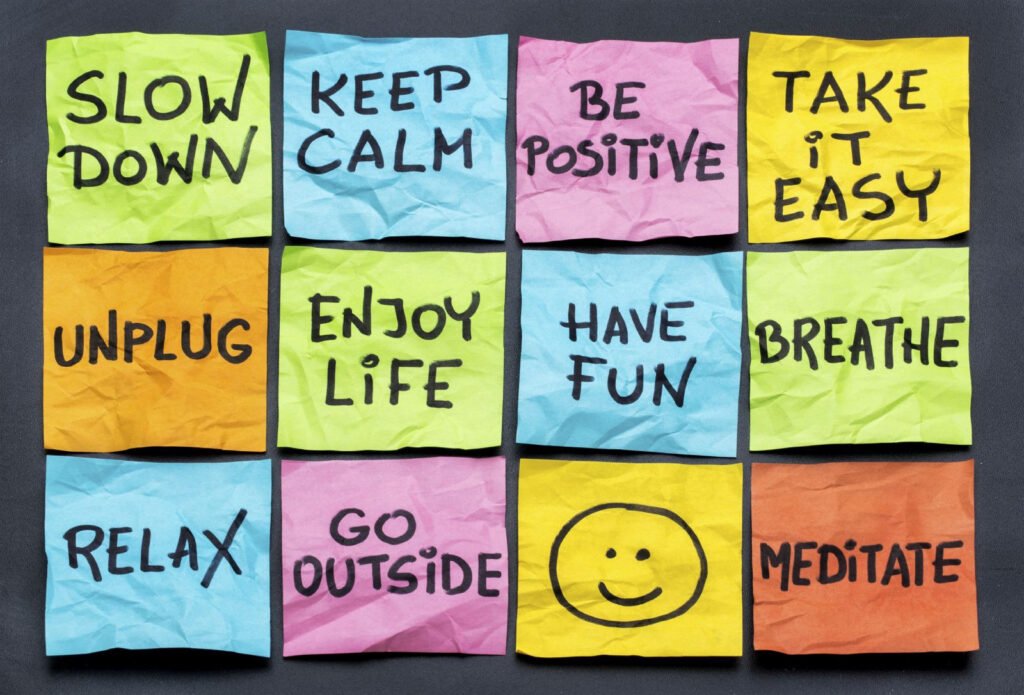The Ultimate Guide to Beating Stress: 12 Tips You Can’t Miss
Beating stress is something everyone wishes for, but it is like an uphill battle. Stress has become a part of life in the modern world, as there are always pressures at work, family problems, financial issues, and the continuous information bombardment that makes a person feel overwhelmed. The impact of stress can be very broad, affecting not only your mental health but also your physical well-being. But here’s the good news: stress can be overcome entirely, and you can reclaim your life and peace of mind using the right strategies.
Beating stress first begins with awareness of how it affects your life. For some, stress looks like irritability, fatigue, or the inability to focus. Others might experience physical symptoms of stress: headaches, muscle tension, or even gastrointestinal distress. Early signs of stress must be acknowledged so that proactive steps can be taken to prevent it from becoming chronic. Chronic stress may lead to long-term health problems, such as anxiety disorders, depression, heart disease, and even a weakened immune system. If you focus on ways to manage and reduce stress effectively, you can avoid these negative outcomes and lead a healthier, happier life.
Beating stress is not about eradicating everything that causes stress or problems but learning how to control your reaction towards the stressors. Life indeed has its many challenges, but it is on how you deal with them that really matters. Therefore, with appropriate tools and techniques, you could face these stressors head-on without letting them dominate your emotional or physical being. That is where stress management techniques come in. From mindfulness and exercise to learning how to set healthy boundaries and prioritize self-care, there are countless strategies that can help you on your journey to beating stress.
This ultimate guide will walk you through 12 powerful tips that will help you start beating stress and regain your peace of mind. These are easy-to-implement tips to help you navigate daily life stresses or more serious stressors. Beating stress requires a combination of proactive strategies and the right mindset, and we are here to show you how to integrate both into your routine.
Moving on, let’s learn the 12 essential tips that will help you beat stress once and for all. You’re working hard or, perhaps, dealing with family pressures, but just remember that these tips will help you overcome the challenges you face in life better and with more surety.
Here’s a full guide as to how you can beat your stress with these powerful tips:

1. Identify Stress in the Early Stages
To beat stress, it is crucial to identify the signs of stress before it runs out of hand. Stress presents itself in two dimensions: physical and emotional. Physical symptoms can be a headache, fatigue, muscle tension, or inability to sleep. Emotional signs of stress might include anxiety, irritability, or a feeling of being overwhelmed.
This will enable you to take early measures to control stress before it affects your health or productivity. Developing a sharp awareness of what triggers your stress and how they affect you will help you to take the right measures to handle them better.
2. Mindfulness and Meditation
Mindfulness and meditation are two of the most powerful tools for managing stress. These practices encourage you to focus on the present moment, which helps you break free from the cycle of worrying about the future or ruminating on the past. Studies have shown that regular mindfulness meditation can reduce the production of stress hormones, lower blood pressure, and enhance emotional well-being.
You don’t need to meditate for hours in a day. 10-15 minutes of deep breathing or mindfulness exercises could help calm down your mind and release stress. Try to work them into your daily routine—during a work break, right before bed, or as part of your morning routine.
3. Exercise regularly
Exercise is not only good for the body, but it is also one of the best ways to relieve stress. Physical activity increases the production of endorphins, which are your body’s natural mood elevators. Exercise also improves sleep, boosts self-esteem, and enhances cognitive function—important factors in managing stress.
Find an exercise routine that works for you. Whether it’s running, yoga, weight training, or dancing, the key is consistency. Aim for at least 30 minutes of moderate exercise most days of the week to experience the stress-reducing benefits.
4. Prioritize Sleep
Sleep is essential in stress management; instead, most people forgo rest during stressful moments. Continued sleep deprivation may worsen the feelings of being stressed up and contribute to anxiety, irritability, and difficulty in concentrating. Ensuring that you get quality sleep has immense benefits in terms of emotional resilience and health at large.
Aim for 7-9 hours of sleep at night, and create a calming bedtime routine. Try to minimize your screen time before bed, and avoid any caffeine intake at night. Some people find reading, taking a warm bath, or practicing deep breathing helps their body know that it is time to rest.
5. Have a Balanced Diet
Your diet plays a highly influential role in how your body responds to stress. Nutrient-dense foods can help your body fight the adverse effects of stress better. Fruits, vegetables, whole grains, and lean proteins are some of the most ideal antioxidant, vitamin, and mineral-dense foods that play an important role in reducing inflammation and stabilizing mood, along with boosting cognitive function.
Avoid too much sugar, caffeine, and processed foods. These may contribute to stress due to blood sugar spiking and crashing, causing you to become irritable or anxious. You give your body what it needs to stay calm and focused when you eat a balanced, whole-food diet.
6. Stay Organized
Disorganization is another source of significant stress. It can create disorganized surroundings, which, when combined with an unstructured schedule, can cause someone to feel confused and unable to think clearly, ultimately making it impossible to concentrate or be productive. One effective method of reducing stress is by maintaining an organized life, whether physically or daily.
Declutter your workspace or living area regularly. Use planners or digital apps to keep track of tasks and deadlines. Breaking down larger tasks into smaller, manageable steps can help you stay on top of things and avoid feeling overwhelmed.
7. Learn to Say No
Stress often arises from too much on your plate. A lot of us have a tendency to overcommit or say yes to requests based on guilt or the need to please others. Overloading, however, often leads to burnout and increasing stress levels.
It is important to learn how to say no so as to have a balanced life. Prioritize your commitments, and don’t be afraid to set boundaries. If something doesn’t align with your values or capacity, it’s okay to politely decline. Saying no is a key step in managing your time and reducing stress.
8. Connect with Others
Social support is one of the most effective ways to manage stress. Connecting with friends, family, or colleagues can help you feel understood, supported, and less isolated. Talking about your stressors with others can provide perspective and offer solutions you may not have considered.
Engage in social relationships. This could be as simple as a call or coffee date with a friend. Strong relationships and support networks are an essential way to help build up your emotional strength when it comes to handling stress.
9. Deep Breathing
The practice of deep breathing is simple and highly effective. Stress causes people to breathe shallowly and rapidly, heightening the level of anxiety that is felt. Deep breathing triggers the parasympathetic nervous system, thereby helping to relax the body and mind.
Try the 4-7-8 technique: breathe in through your nose for 4 seconds, hold your breath for 7 seconds, and breathe out through your mouth for 8 seconds. Repeat this for a few minutes to lower your heart rate, relax your muscles, and reduce stress.
10. Take Breaks
Constant work and mental fatigue can easily accumulate stress. Taking regular breaks throughout the day can help you recharge, increase productivity, and reduce stress. Whether it’s stepping outside for a walk, stretching, or simply closing your eyes for a few minutes, breaks are essential for maintaining focus and preventing burnout.
Schedule breaks into your day, especially during long work or study hours. A small break can work wonders for reducing your stress and well-being levels.
11. Practice Gratitude
This is where the situation gets negative as people start thinking only about bad things. But one can easily displace his ‘negative’ view by practicing gratitude. This can work on some ‘fight’ against stress. Studies have also shown that practicing gratitude helps reduce the symptoms of anxiety and depression with improvement in mental well-being.
Spend some time daily contemplating what you have to be thankful for. Be it by keeping a gratitude journal or just noting what you appreciate, this habit helps you look beyond stressors and see life more positively.
12. Seek Professional Help
If your stress becomes unbearable, then it is high time to seek professional help. Chronic stress can lead to serious mental health issues such as anxiety, depression, or burnout. A licensed therapist or counselor can provide you with tools and strategies to cope with stress more effectively.
Don’t wait to seek out help if you feel overwhelmed. Therapy, counseling, or a support group might be just the place to open up about the sources of stress and learn good coping mechanisms.
How benzodiazepines can help beat stress?
The advantages of benzodiazepines lie in their usage in stress management, especially during acute anxiety or overwhelming tension. The most obvious advantage is their rapid action within 30 minutes to an hour after the medication has been administered. This can be useful when immediate calmness is required during a panic attack or stressful situation. Benzodiazepines help reduce feelings of anxiety, muscle tension, and restlessness in the brain by enhancing the activity of the neurotransmitter GABA, which induces a sense of calm and relaxation. This can be a quick response to the individual who has to deal with stressful situations.
Benzodiazepines are also very effective in managing anxiety-related symptoms and preventing the physical and emotional toll that stress can take on the body. For those experiencing constant worry, insomnia, or hyperactivity due to stress, these medications can provide much-needed relief, helping individuals regain a sense of control and focus. With their ability to help people manage acute stress episodes, benzodiazepines allow individuals to navigate challenging moments more effectively, providing temporary respite that can make it easier to focus on long-term solutions for stress management.

Conclusion
Beating stress is a journey, not a destination. It’s important to recognize that stress is a natural part of life, but how you manage it is what truly makes the difference. By adopting the 12 powerful tips shared in this guide, you can take meaningful steps toward mastering stress in your daily life. Beating stress isn’t about eliminating every pressure, but rather building resilience and using practical tools to navigate stressors effectively.
Remember, beating stress requires patience and consistency. It’s about finding what works best for you, whether it’s through relaxation techniques, physical exercise, or managing your environment. Each small change you make toward reducing stress can have a big impact on your overall well-being. The key is to stay committed to the process and understand that, with time, you can regain control over your stress levels.
Ultimately, beating stress is about taking control of your mind and body. You have the power to create a life where stress no longer holds you back. By applying the strategies outlined here, you can build a lifestyle that embraces balance, health, and peace of mind. Keep practicing these tips, and you’ll find that beating stress becomes a natural part of your life.
So, take a deep breath, acknowledge your stress, and take the first step toward beating it today. Your journey to a stress-free life starts now.

